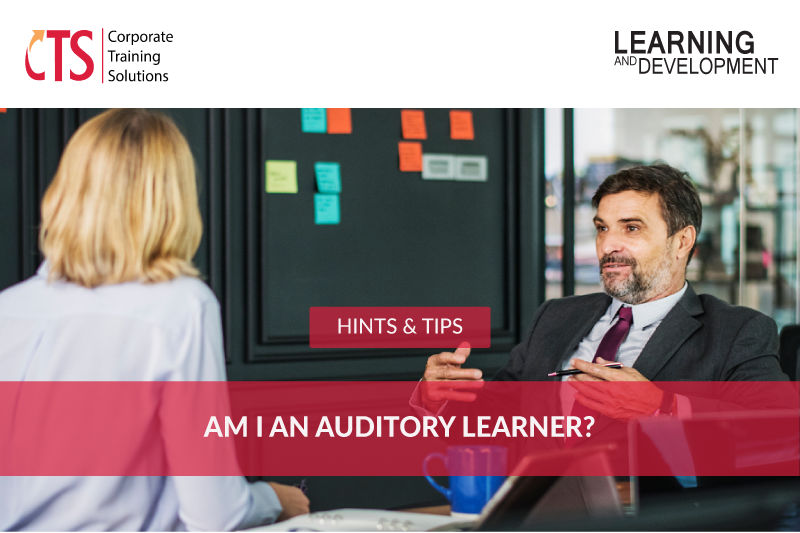The second most common result of VAK quiz is the auditory – or aural – learner.
According to research carried out by Purdue University, approximately 30 per cent of us fall under this category.This type of learner mainly relies on hearing and speaking to absorb information effectively, but what else does this mean?
What are auditory learners good at?
Auditory learners are skilled in memorizing what they hear and say, and it is estimated that they will retain around 75 per cent of what they are told in a lecture or seminar.
Because they enjoy listening and speaking, they are naturally good communicators. They often have a good memory when it comes to names, and enjoy participating in debates and presentations.
What are an auditory learner’s weaknesses?
If you are an auditory learner, it is likely you will find it difficult to work quietly for long periods. As a result, you may benefit from background music.
Another trait is that you will probably be distracted by any background noise, although you find silence also diverts your attention.
Auditory learners prefer to work with others so they can talk about ideas and discuss their assignments. While this isn’t necessarily a bad thing as a whole, it can have its drawbacks when independent tasks are required.
Traditionally, auditory learners don’t reap the benefit of writing down notes as much as others do, and can find written work more challenging than visual learners. They also usually take longer to read text.
What training techniques are best for auditory learners?
Instead of spending time during seminars writing excessive notes, an auditory learner may benefit more from recording the content of the session and listening back to it.
However, that’s not to say that notes can’t be helpful – and a method of study that many auditory learners find effective is to read what they’ve written out loud when attempting to commit it to memory.
Discussion can also help to reinforce new information, so having a ‘study buddy’ to talk through the details can make a big difference when it comes to memory retention further down the line.
Auditory learners traditionally prefer to discuss concepts they do not initially understand, so should be prepared to immediately follow up any points they are struggling to follow with their training facilitator at the first opportunity.
Nevertheless, even when another person isn’t available to talk to, auditory learners still benefit from verbalizing all aspects of their work. Whether this is reading out text as it is being written or simply stating the goals of a particular assignment at the start of a project – this is commonly recognized as being a fruitful measure for this type of learner.
The most important thing is to ensure that your training methods work for you. It might be that you’re not completely reliant on the auditory learning style, at which point it might be better to mix your techniques up until you find a balance of all the different learning types that suits your needs.
Everyone’s different, so remember that these tips aren’t completely prescriptive after getting your quiz results.
———————————————————————————-
If you are considering booking on at CTS course, you can rest assured that our sessions are tailored to the individual’s needs so that regardless of your learning type, you will always get the most from your experience with us.
Source: http://www.lct.co.uk/blog/am-i-an-auditory-learner/


